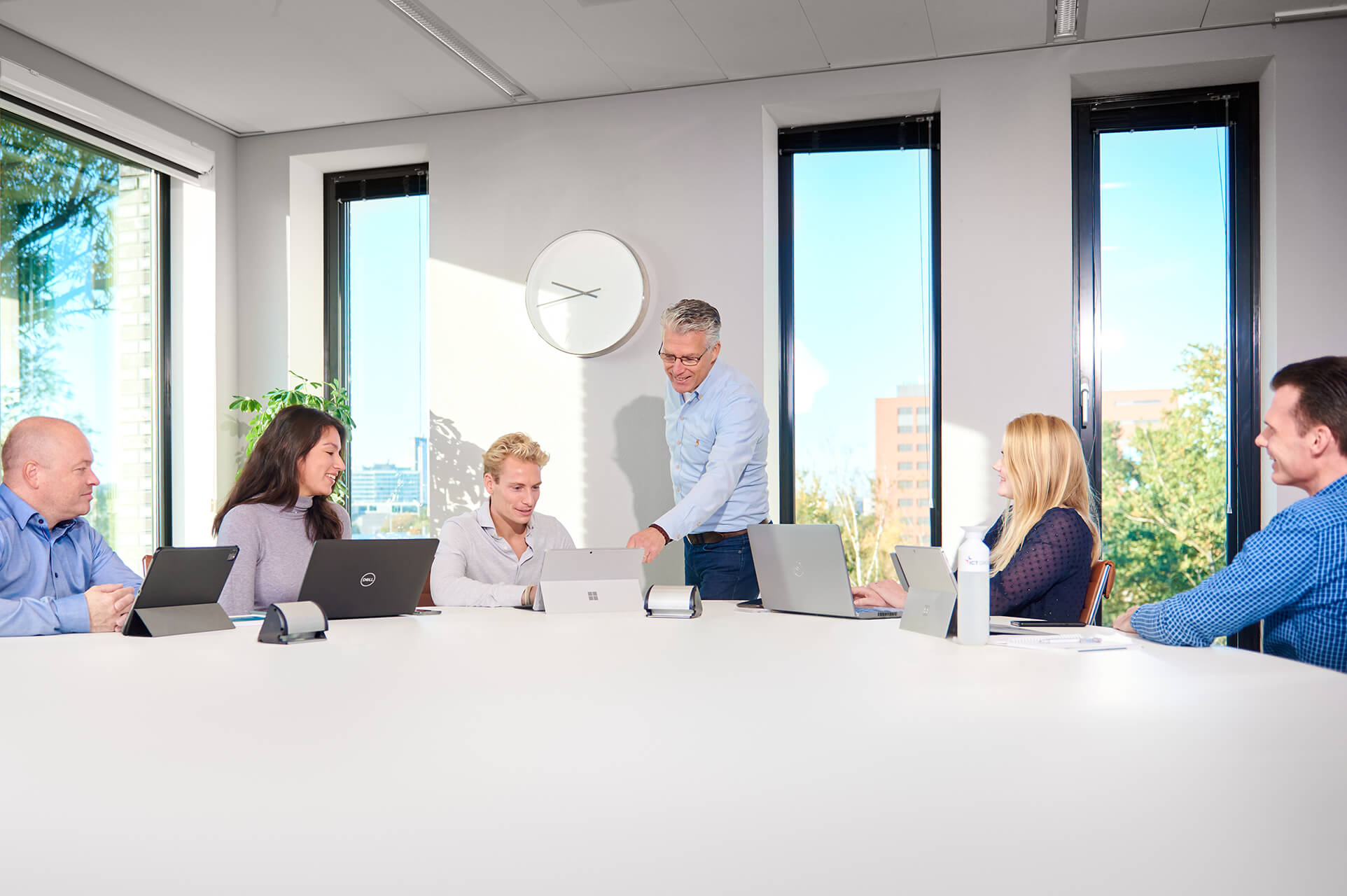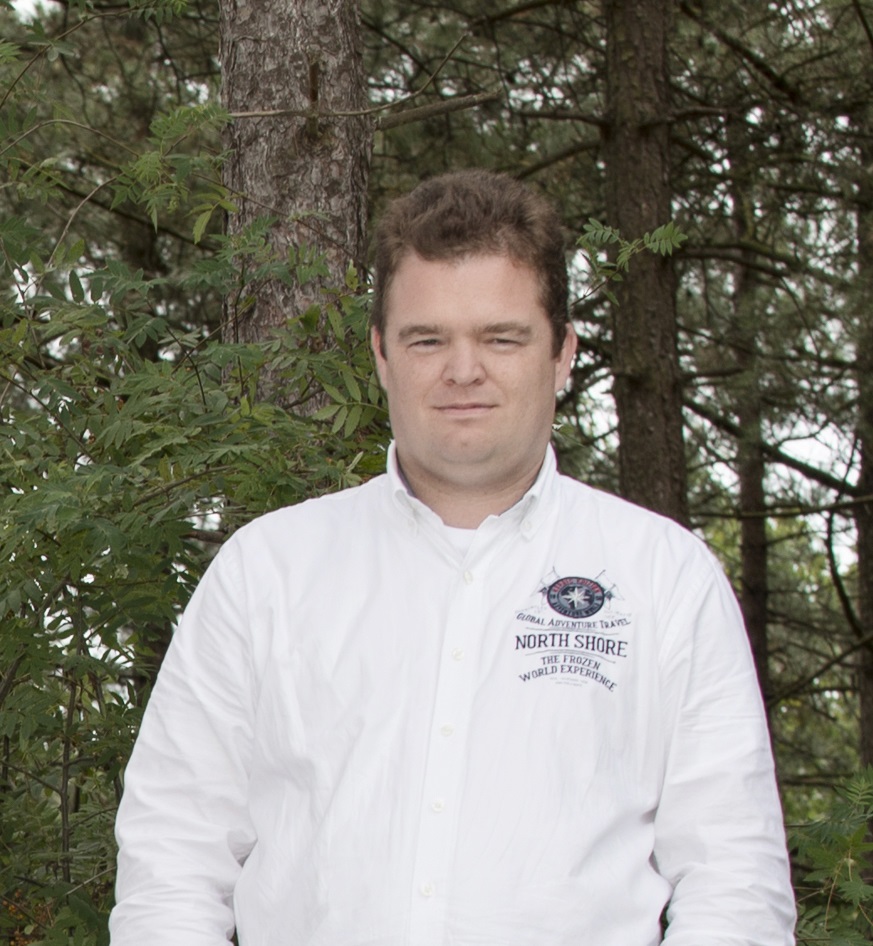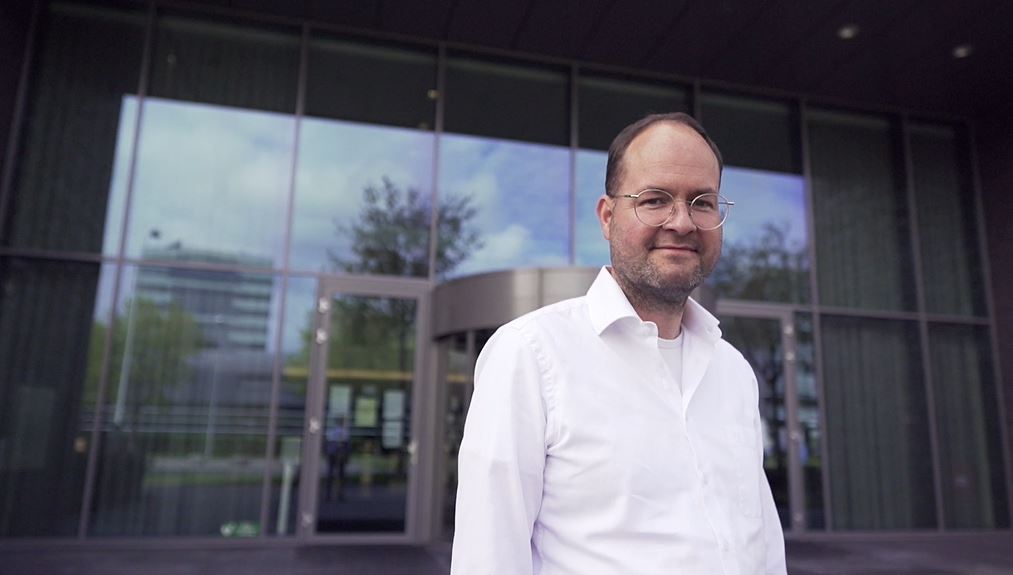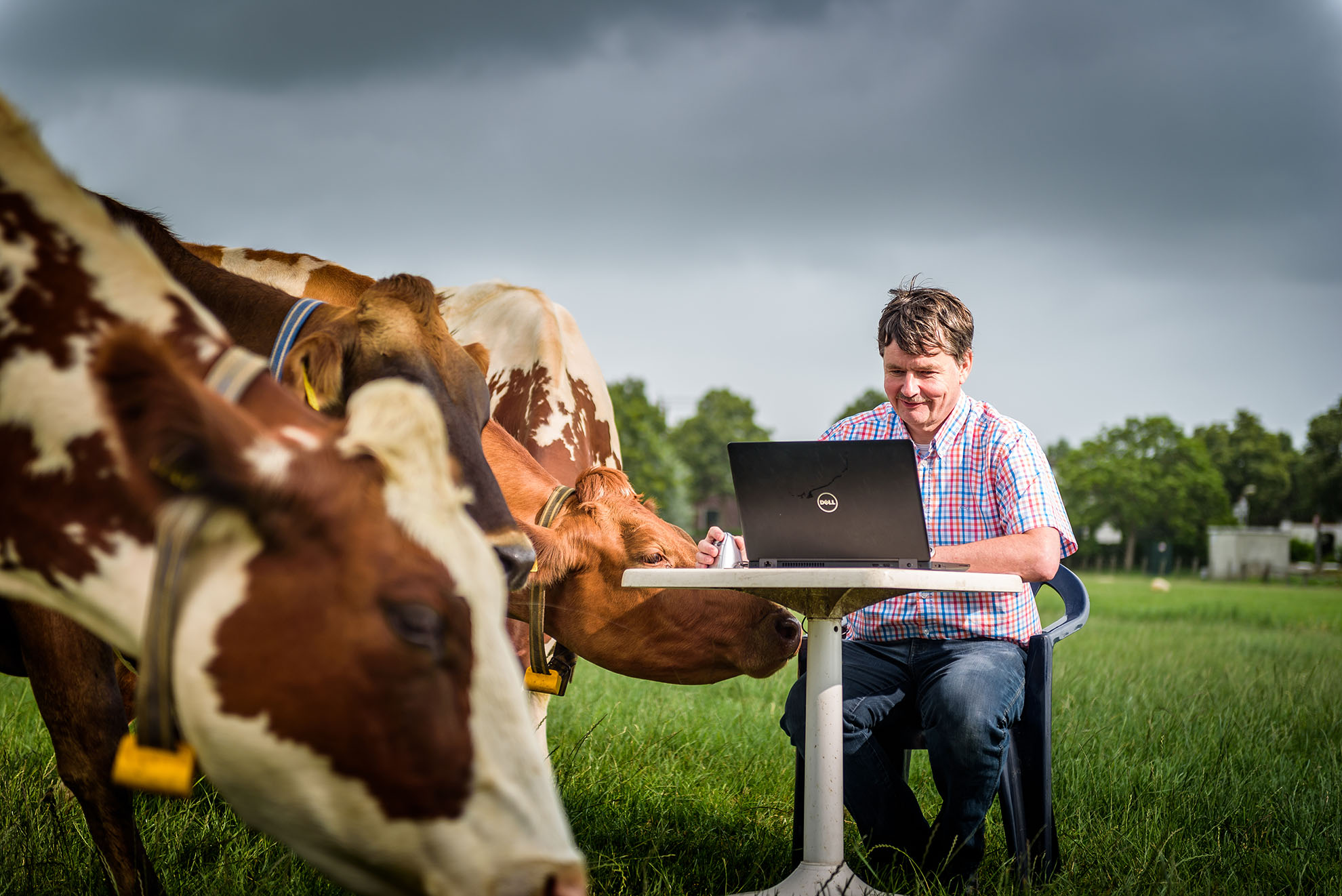
Friesland Campina’s new, ultra-modern milk processing plant in Leeuwarden is about to be commissioned for 24/7 milk processing. An automated evaporation and enrichment process will convert two million litres of raw milk a day into various evaporated milk products. ICT Group played an important part in the realisation and implementation of the project.
It’s a real kick to see your software bring the factory to life
One of the ICT professionals involved in the project was technical specialist Paul van Bommel. Two years ago, he strengthened the team tasked with implementing Wonderware software for the project. For Paul, this was the perfect opportunity to gain more experience with Manufacturing Execution Systems (MES) and to learn the ins and outs of the software package.
Dark factory in a greenfield
Everything is fully automated in the new high tech factory. ‘One of the requirements was that it had to operate as a dark factory,’ says Paul. ‘In other words, one that runs with minimal operator interference. Theoretically, you could switch off the light and the factory would continue to run. The systems were designed with this in mind. All systems can communicate with each other and know what the others are doing. The advantage is that the new factory is a greenfield, meaning everything was built from scratch, including the hardware and software. I love that.’
“I love engineering, figuring out how things work, and building things”
SAP and Wonderware
The biggest challenge for Paul and his team was implementing the Wonderware software. This type of software enables different layers in a system to communicate with each other. ‘You can compare it to a pyramid that consists of three layers. The top is the SAP layer, which is where the orders come in, and has the least information. Under that is the Wonderware layer, which translates the order to the control layer underneath. That layer controls production. During the entire process, the minimal amount of data that enters at the top layer is increasingly enriched so the control layer – the base of the pyramid – has enough parameters to work with. Our job was to design and further develop this process.’
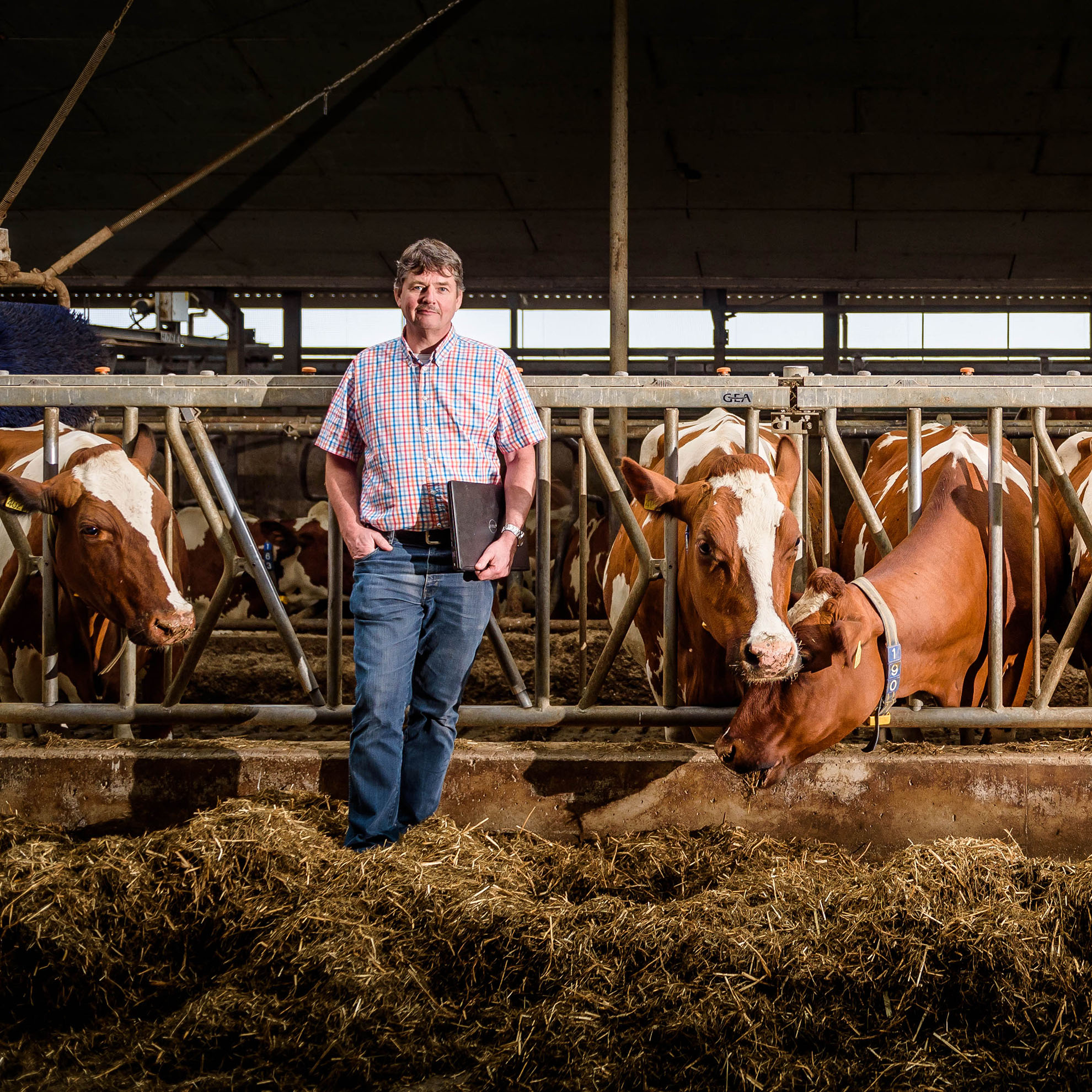
Learning experience
Every project is a great learning experience. There are always things to be reinvented, tested and checked. Sometimes, this calls for additional training programmes for employees. ‘I had no experience with Wonderware, so I took a course,’ says Paul. ‘You first get to know the platform and then start focusing on the specific details. A simple comparison: first you learn Windows, then you learn Word. After that, the project is learning by doing. You also have to understand the milk process in the factory. There’s a lot more involved in converting raw milk to coffee milk than you’d think.’
The magic moment
After months of work, meetings, measurements, tests, research and feedback, the moment finally arrived to commission the system. ‘I’m a real techie,’ says Paul with enthusiasm. ‘I love engineering, figuring out how things work, and building things. But the best part is the moment when your software engineering work brings the factory to life. That magic moment when you press the button and everything starts humming, spinning and moving; water starts to flow through the pipes, there’s noise and yelling and everyone is enthusiastic. And they should be: the factory just came to life.’
